Disclosure: This article contains affiliate links. We may earn a commission from purchases at no extra cost to you, which helps our travel content.
There's a rhythm to Mumbai's marketplaces that reminds me of Glasgow's weekend markets, but with an intensity that's uniquely Indian. After fifteen years of living in Delhi and countless trips to Mumbai for both business and pleasure, I've developed a particular fondness for this city's shopping landscape. It's a beautiful contradiction – ancient bazaars where time seems to stand still exist just streets away from gleaming boutiques showcasing contemporary Indian design. As someone who's spent a career analyzing textile traditions, I find Mumbai's shopping scene offers a fascinating glimpse into how India balances its rich heritage with its forward-looking ambitions.
Colaba Causeway: Where Budget Shopping Meets Colonial Charm
My first Mumbai shopping expedition invariably begins at Colaba Causeway, where the Gothic architecture provides a striking backdrop to the bustling street market. Here, stalls spill onto pavements in a glorious chaos of color and commerce.
I've spent countless hours navigating these lanes, where you'll find everything from silver jewelry and vintage Bollywood posters to leather goods and pashmina shawls. The trick is to approach with a blend of skepticism and openness – quality varies dramatically, and bargaining isn't just expected, it's part of the cultural experience.
My analytical side has observed that prices typically start at about three times the actual value, so aim to negotiate down to roughly one-third of the initial quote. But do so with good humor – the back-and-forth is meant to be enjoyable rather than confrontational. I once spent nearly an hour negotiating for a beautiful hand-embroidered wall hanging, sharing chai with the shopkeeper as we gradually found our middle ground. The piece now hangs in my Delhi home, a reminder that the best souvenirs come with stories.
For serious shopping, I always bring my foldable shopping bag which tucks into my pocket until needed, then expands to hold a surprising amount of treasures.
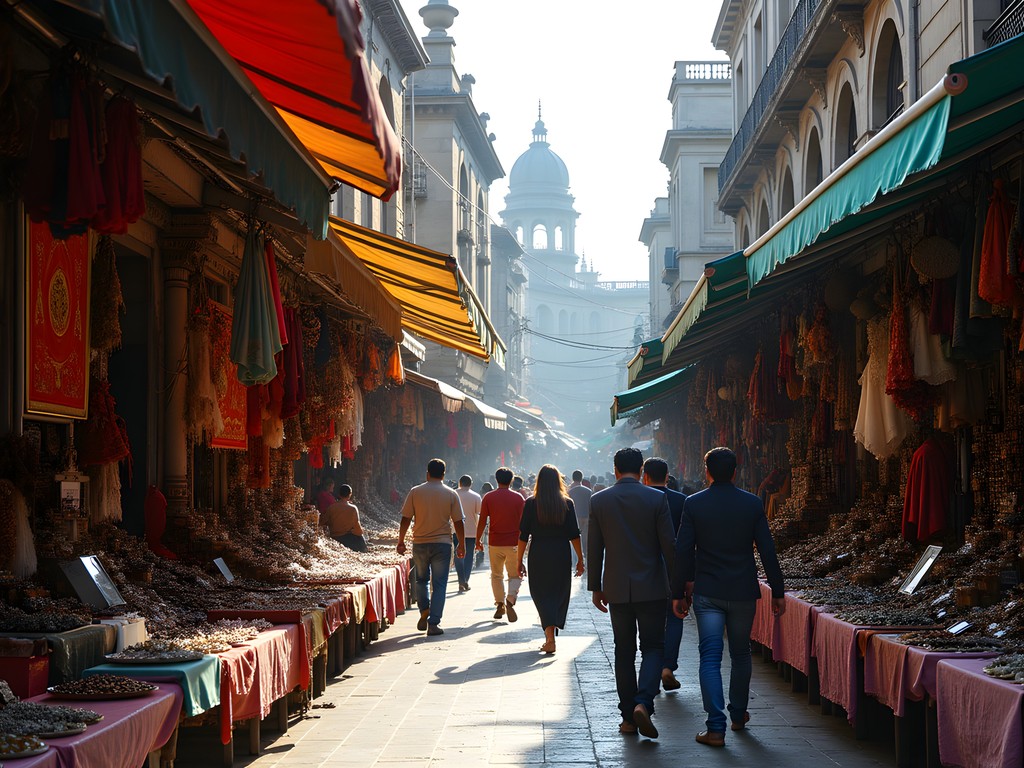
💡 Pro Tips
- Shop in the morning (before 11 am) to avoid crowds and get better bargaining leverage
- Carry cash in small denominations – most stalls don't accept cards
- Look for shops with fixed prices if bargaining isn't your cup of tea
Crawford Market: A Textile Analyst's Paradise
Crawford Market (officially Mahatma Jyotiba Phule Market) holds a special place in my heart. As someone who's built a career analyzing textile production, this historic market offers a fascinating glimpse into Mumbai's commercial soul. The British-era building with its Norman and Flemish architectural influences houses a labyrinth of stalls selling everything imaginable.
The textile section is where I lose track of time. The variety of fabrics – from everyday cotton to elaborate brocades – provides a tangible connection to India's weaving traditions. I often bring my fabric scissors when I know I'll be purchasing fabrics. They're compact enough to carry but make clean cuts when examining material quality.
What makes Crawford special is how it organizes itself by product type, creating specialized zones for different goods. The fruit and vegetable section bursts with seasonal produce, while the pet market (which I personally avoid) is a reminder of the complex relationship between commerce and ethics in developing economies.
Don't miss the spice section – the aromas create an olfactory map of India's culinary traditions. I always replenish my spice collection here, carefully selecting whole spices rather than pre-ground versions for maximum flavor and longevity.
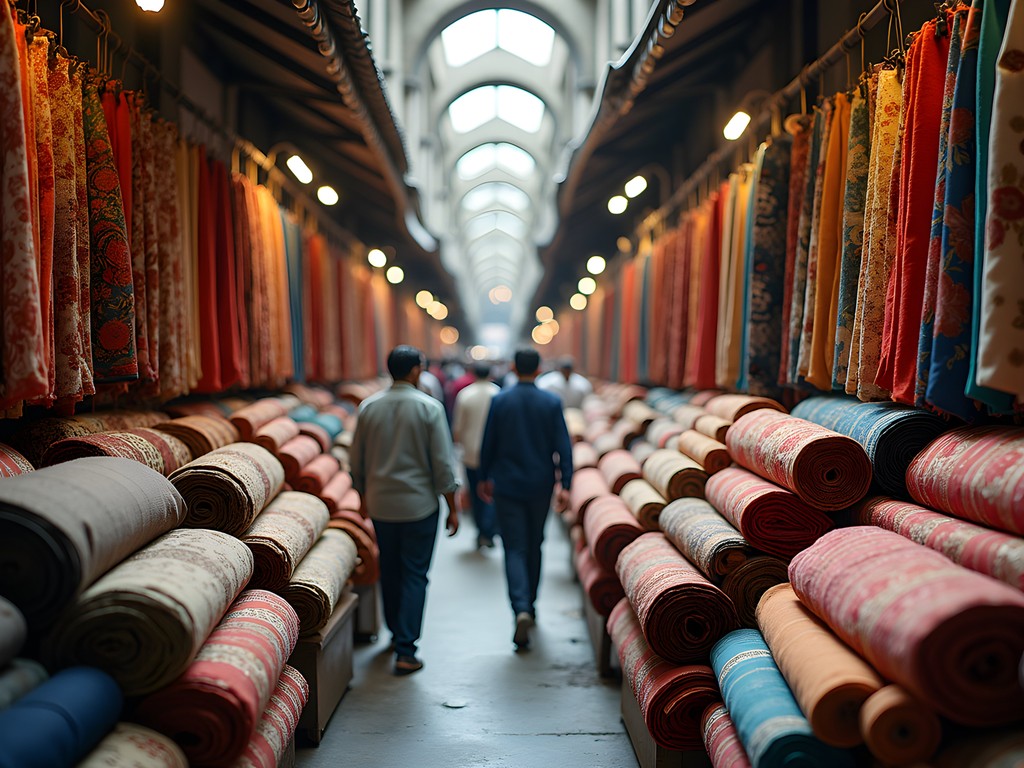
💡 Pro Tips
- Bring a cloth bag for purchases as plastic bags are technically banned (though still widely used)
- Visit on weekdays to avoid weekend crowds
- Look up at the beautiful British-era friezes and carvings on the building itself
Chor Bazaar: Mindful Treasure Hunting
My first visit to Chor Bazaar (Thieves' Market) was fifteen years ago, shortly after arriving in India. I was still adjusting to the sensory overload that is daily life here, and the bazaar's chaotic energy initially overwhelmed me. Now, I approach it with the mindfulness practices I've cultivated over the years – observing my reactions without judgment, staying present with each interaction, and finding calm amid the commotion.
Despite its notorious name (chor means 'thief' in Hindi), the market today is largely legitimate, though its origins may indeed have involved stolen goods. What you'll find now is a treasure trove of antiques, vintage items, and bric-a-brac spanning decades of Indian history.
As someone fascinated by how objects carry cultural stories, I find Chor Bazaar endlessly compelling. Victorian furniture sits beside vintage Bollywood posters; old gramophones neighbor brass statuary. My most cherished find was a 1940s hand-block printing stamp that now serves as both decoration and conversation starter in my home office.
Navigating Chor Bazaar requires patience and a discerning eye. I always bring my jeweler's loupe to examine potential purchases closely. It's remarkable how this simple tool has saved me from mistaking reproduction pieces for genuine antiques countless times.
Mutton Street forms the heart of the market, but explore the surrounding lanes for specialized items. Remember that restoration is often necessary for purchases here – factor this into both your budget and expectations.
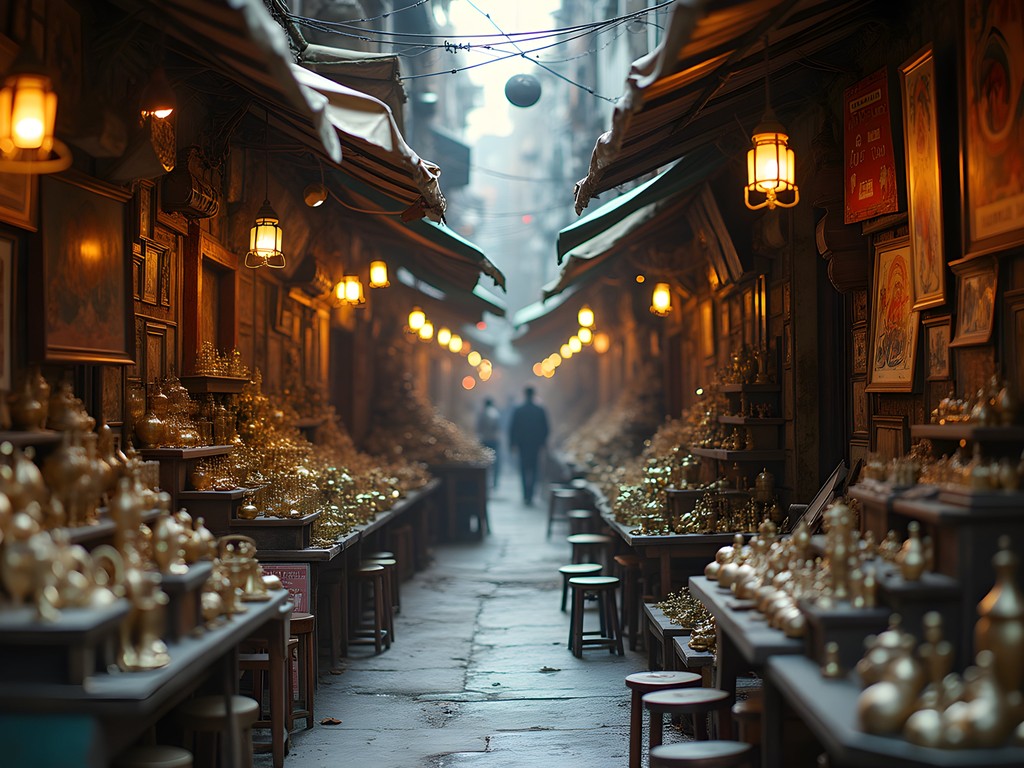
💡 Pro Tips
- Visit on Fridays when the market is fully open (it's closed on Islamic holidays)
- Bring small denominations of cash and be prepared to bargain extensively
- Take photos of larger items and measurements before purchasing to ensure they'll fit in your space
Linking Road & Hill Road: Contemporary Fashion at Mid-Range Prices
When my Scottish cousins visit Mumbai, I inevitably take them to Bandra's Linking Road and Hill Road. These bustling shopping streets perfectly bridge the gap between traditional markets and high-end boutiques, offering contemporary fashion at prices that won't require a call to your bank's fraud department.
As someone who straddles two cultures daily, I appreciate how these areas blend Western fashion sensibilities with Indian aesthetics and production. The street stalls offer everything from knockoff designer sunglasses to trendy footwear, while the brick-and-mortar shops house both international brands and local designers.
During autumn visits, you'll find merchants transitioning their inventory for the approaching festival season. This timing offers a unique opportunity to witness how seasonal changes influence not just what's sold, but how it's marketed and displayed – something my business analyst brain finds endlessly fascinating.
For those seeking clothing with both style and substance, I recommend exploring the growing number of sustainable fashion boutiques in Bandra. These shops merge contemporary design with traditional textile techniques, creating pieces that honor India's craft heritage while looking thoroughly modern.
After a few hours of shopping, my feet inevitably protest. That's when I reach for my blister plasters – a travel essential that's saved countless shopping expeditions from premature ends. They're far superior to regular plasters for preventing and treating friction spots from all that walking.
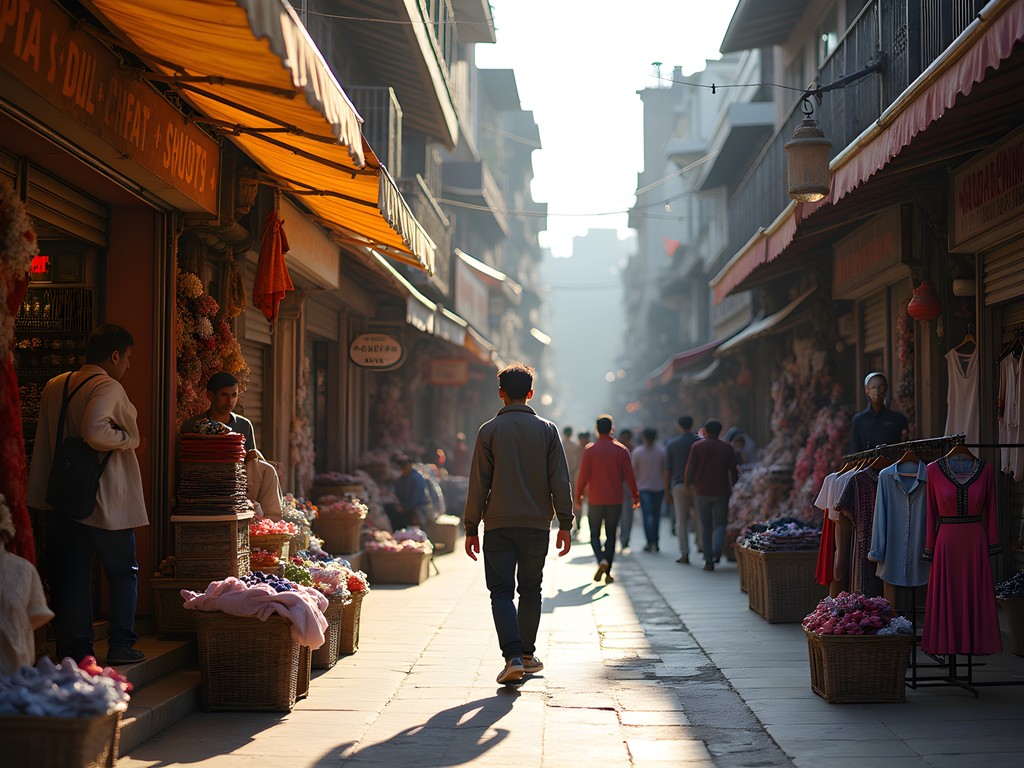
💡 Pro Tips
- Visit on weekday afternoons to avoid the crushing weekend crowds
- Many shops close on Mondays, so plan accordingly
- Look for the growing number of concept stores that showcase independent Indian designers
High Street Phoenix & Palladium: Luxury Shopping with Cultural Context
There's a particular irony to High Street Phoenix that I find delightfully emblematic of modern India. This luxury mall complex stands on the site of a former textile mill – a physical manifestation of how the country has transformed from manufacturing hub to consumer powerhouse within a generation.
As someone who's spent a career analyzing textile traditions, I can't help but reflect on this transition whenever I visit. The Palladium section houses international luxury brands like Gucci and Louis Vuitton, while the main complex offers a mix of global and Indian premium brands. The juxtaposition of traditional craftsmanship and global luxury never ceases to fascinate me.
Despite my usual preference for more authentic shopping experiences, I appreciate what these spaces represent in the context of India's economic evolution. Plus, the air conditioning provides a welcome respite from Mumbai's humidity, especially during autumn when the monsoon's aftereffects can make outdoor shopping a sticky affair.
The mall's food courts and restaurants offer excellent options for refueling between shopping sessions. I particularly recommend stopping at one of the traditional Indian sweet shops to try seasonal festival specialties if you're visiting during the autumn months.
While exploring multiple levels of shops, my crossbody travel bag has proven invaluable. Its RFID-blocking pockets and slash-resistant construction provide peace of mind in crowded spaces, while the organization features keep my shopping lists, phone, and wallet easily accessible.
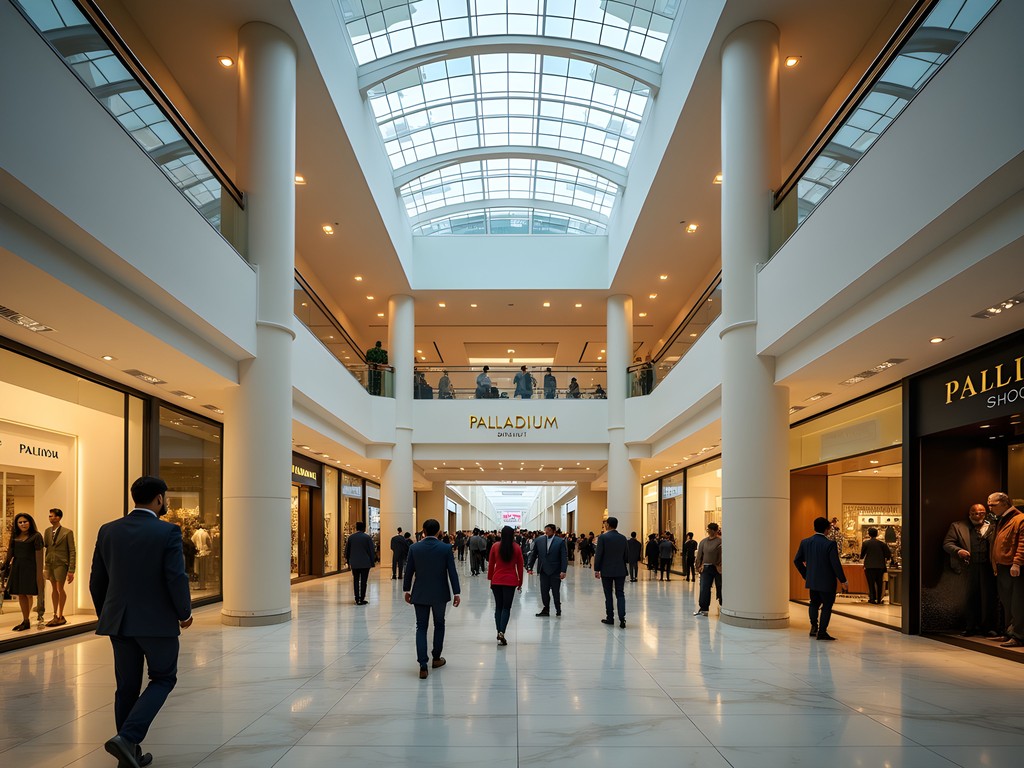
💡 Pro Tips
- Visit on weekday mornings for a calmer experience with attentive service
- Take advantage of the tax refund schemes if you're a foreign passport holder
- Check the events calendar – the central courtyard often hosts interesting cultural exhibitions
Final Thoughts
Mumbai's shopping landscape mirrors the city itself – a fascinating blend of tradition and innovation, chaos and order, affordability and luxury. What makes shopping here uniquely rewarding isn't just the items you'll acquire, but the stories behind them and the experiences you'll have while discovering them. As a solo traveler, these commercial spaces offer windows into Mumbai's soul in ways that traditional sightseeing sometimes cannot.
I've found that approaching Mumbai's markets with mindfulness – being present for each interaction rather than rushing through a checklist of purchases – transforms shopping from mere consumption to cultural connection. Whether you're haggling for textiles at Crawford Market or browsing designer collections at Palladium, each transaction becomes a moment of cross-cultural dialogue.
As you plan your Mumbai shopping adventure, remember that the city's commercial rhythms follow both seasonal and daily patterns. Autumn brings festival preparations and new inventory, while mornings offer calmer experiences than evenings. Most importantly, pack your patience alongside your shopping bags – Mumbai's commercial chaos may initially overwhelm, but surrender to its flow, and you'll discover treasures that transcend mere souvenirs.
✨ Key Takeaways
- Bargain with good humor and aim for about one-third of the initial asking price
- Visit markets on weekday mornings for the best experience and selection
- Look beyond the obvious tourist items for authentic textiles and crafts
- Balance your shopping between traditional markets and contemporary retail spaces
📋 Practical Information
Best Time to Visit
September-November (post-monsoon, pre-peak tourist season)
Budget Estimate
₹5,000-15,000 (~$60-180) for a satisfying shopping experience
Recommended Duration
2-3 days
Difficulty Level
Beginner

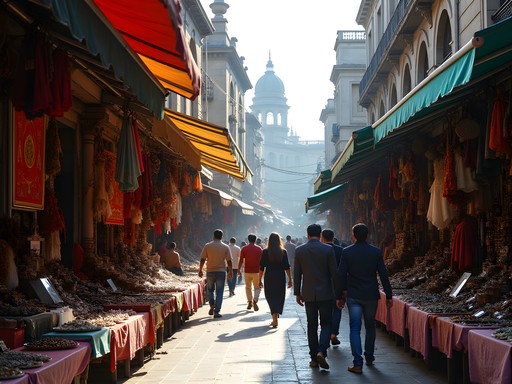
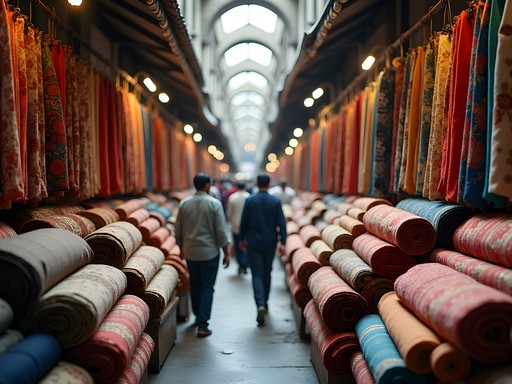
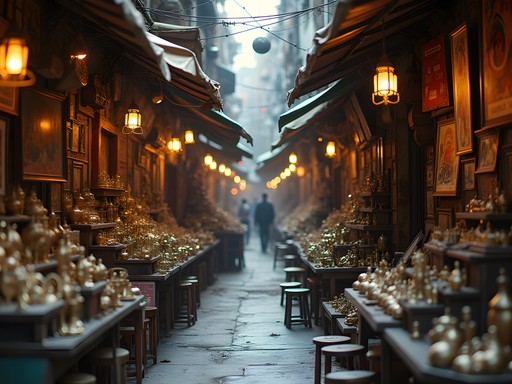
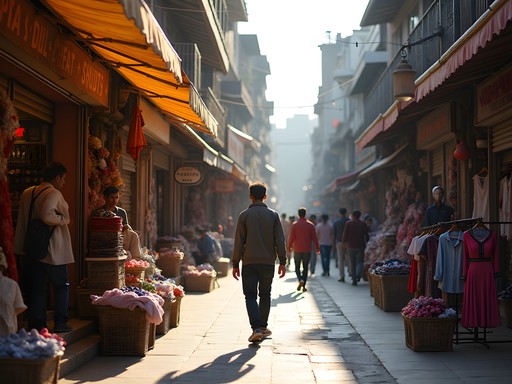
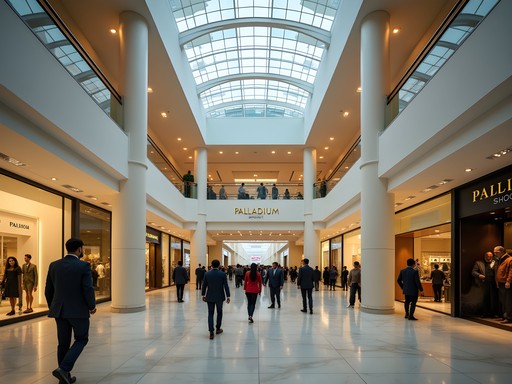


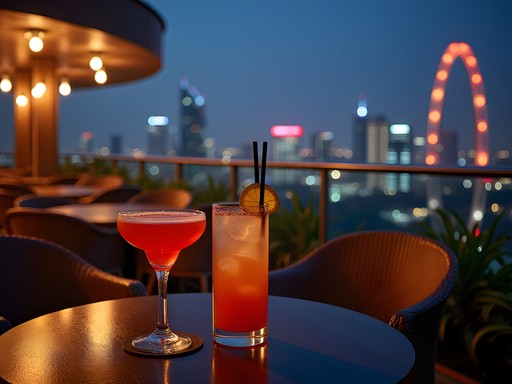
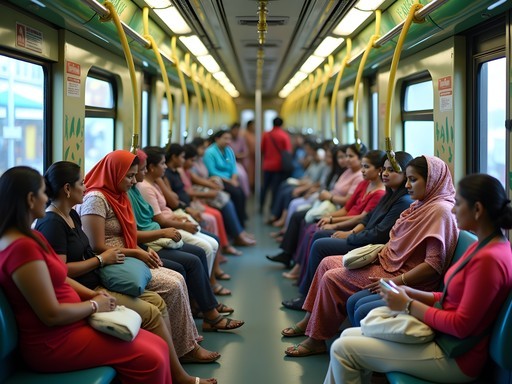
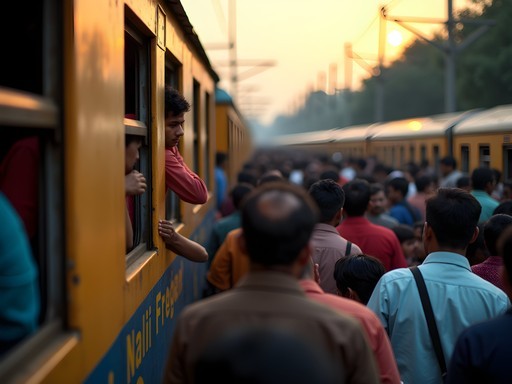
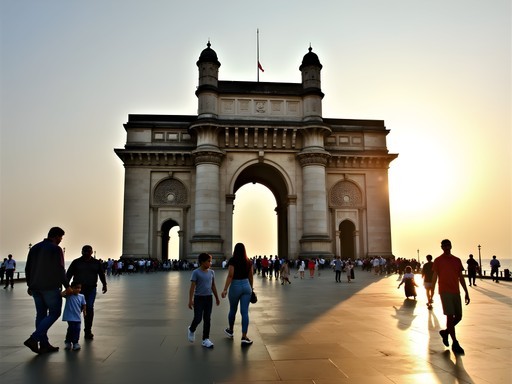
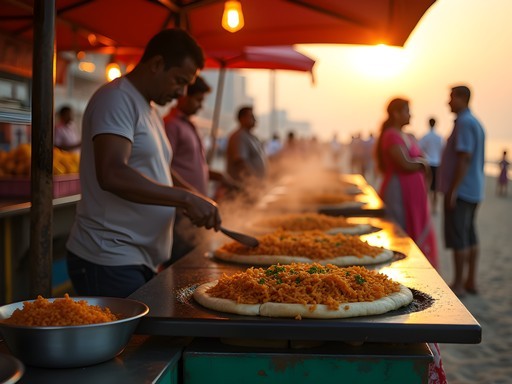
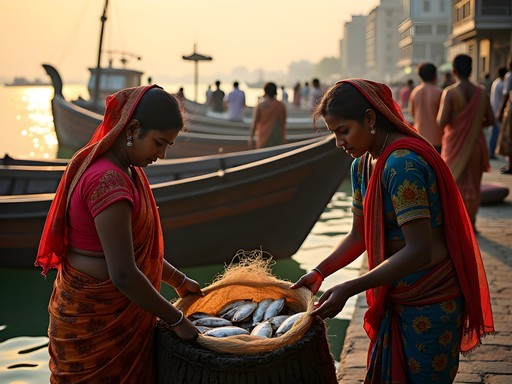
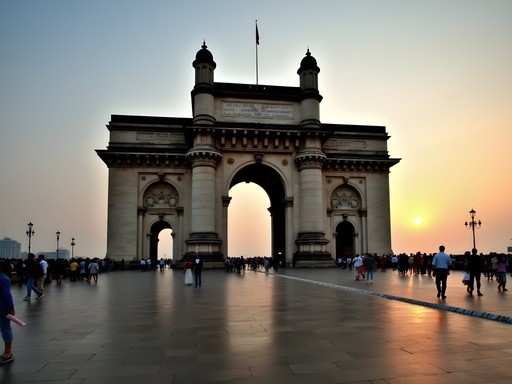
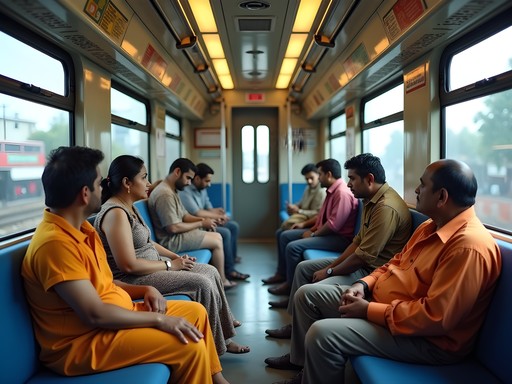
Comments
Sage Dixon
Noah, your piece brought back so many memories! I spent a month exploring Mumbai's markets for my travel series last year. One tip I'd add - for anyone intimidated by the chaos of the bazaars but still wanting authentic goods, check out Artisans' Guild in Kala Ghoda. It's a curated collection of traditional crafts at fixed prices, perfect for those who hate haggling. Also worth mentioning: the street fashion at Linking Road is incredible for trend-spotting. I saw styles there that showed up in US stores 6 months later! For transportation between shopping areas, I found using Uber was much easier than trying to negotiate with taxi drivers, especially when loaded down with shopping bags.
springnomad
Artisans' Guild sounds perfect for me! Adding it to my list for next time. Did you find the prices reasonable there?
Sage Dixon
Higher than street markets for sure, but the quality is guaranteed and you're supporting artisans directly. I'd say 30-40% more than what you'd pay after haggling elsewhere, but worth it for unique pieces!
wanderlusttime
After 5 trips to Mumbai, I've learned to always carry my crossbody bag in the crowded markets. Keeps hands free for shopping while keeping valuables secure. For those heading to Crawford Market, the textile section in the back corner has better prices than the front stalls. And don't miss the food markets nearby - the spices are incredible quality and much cheaper than buying them back home.
dreamclimber
Thanks for the Crawford Market tip! Any favorite spices I should look for specifically?
wanderlusttime
Definitely saffron (way cheaper than in the US/Europe), cardamom, and the various masala blends. They'll vacuum seal them for you if you ask!
springnomad
OMG I LOVE MUMBAI SHOPPING!!! Went last year and my suitcase was literally bursting on the way home. Chor Bazaar was my absolute favorite - found the coolest vintage Bollywood posters that now hang in my apartment. Everyone compliments them! Noah, your comparison to Glasgow markets is spot on - same energy but Mumbai is on a whole different level of sensory overload!
staradventurer
Any tips on bargaining at Colaba Causeway? I'm terrible at haggling but don't want to overpay.
Sage Dixon
Start at 40% of their asking price and work your way up to about 60-70%. Always be ready to walk away - that's when the real deals happen! I once pretended to leave a stall at Colaba and the vendor chased me down two shops over with my 'final price.' Also, bring small bills and keep them separate from larger ones. And definitely check out the silver jewelry - some of the best deals I found on my last trip!
staradventurer
That's super helpful, thanks Sage! I'll practice my disappointed walk-away face before I go 😂
dreamclimber
This guide is perfect timing! Heading to Mumbai next month and shopping is top of my list.
wanderlusttime
Make sure to visit Crawford Market early in the day. Gets super crowded by afternoon!
dreamclimber
Thanks for the tip! Early morning shopping it is then.
Nicole Russell
Noah, this is such a comprehensive guide! I spent a week in Mumbai last month and hit most of these spots. One thing I'd add about Linking Road - the street food nearby is INCREDIBLE. There's a little chaat stand about halfway down that had the best pani puri I've ever tasted. Also, for anyone visiting Crawford Market, go early! I arrived at 9am and had such a better experience negotiating prices before the crowds. The textile section is overwhelming in the best possible way - I ended up shipping home three suitcases worth of fabrics! Has anyone tried the boutiques in Bandra that Noah mentioned? That's on my list for next time.
dreamvibes
Three suitcases?! Now that's serious shopping! Did you have any issues with customs when bringing all that back?
Nicole Russell
None at all! Just declared everything honestly. The fabrics were for my small design business, so I kept all receipts for tax purposes. Totally worth it - the silk brocades were about 1/4 the price I'd pay in NYC.
stardiver
Anyone know if Crawford Market is open on Sundays? Planning my itinerary now.
tripguide
Yes it is! But it gets super crowded on weekends. If you can go on a weekday morning, you'll have a much better experience.
stardiver
Perfect, thanks for the tip!
photopro
Is Chor Bazaar safe for solo female travelers? Planning my first India trip and really want to check out those antiques you mentioned!
sunnyzone
Just got back and went to Chor Bazaar alone (I'm female). It was fine during daytime, just dress modestly and be aware of your surroundings. The vintage cameras there are amazing!
photopro
Thanks so much! Vintage cameras are exactly what I'm after!
tripguide
OMG the Chor Bazaar section took me right back! Found the coolest vintage Bollywood posters there last year. Such a treasure trove!
dreamvibes
Great post! I'll be in Mumbai next month - how aggressive should I be with bargaining at Colaba Causeway? Any tips?
Nicole Russell
I was there in September! Start at 40-50% of the asking price and be prepared to walk away. They'll usually call you back with a better offer if you seem genuinely uninterested. Also, the shops deeper in the market often have better prices than those right at the entrance. Have fun!
dreamvibes
Thanks Nicole! That's super helpful. Did you feel safe shopping there alone?
Nicole Russell
Absolutely! Just the usual precautions - keep your bag close, be aware of your surroundings. The market is quite busy which actually makes it safer. I used my anti-theft crossbody and felt totally secure.
Venture X
Premium card with 2X miles, $300 travel credit, Priority Pass